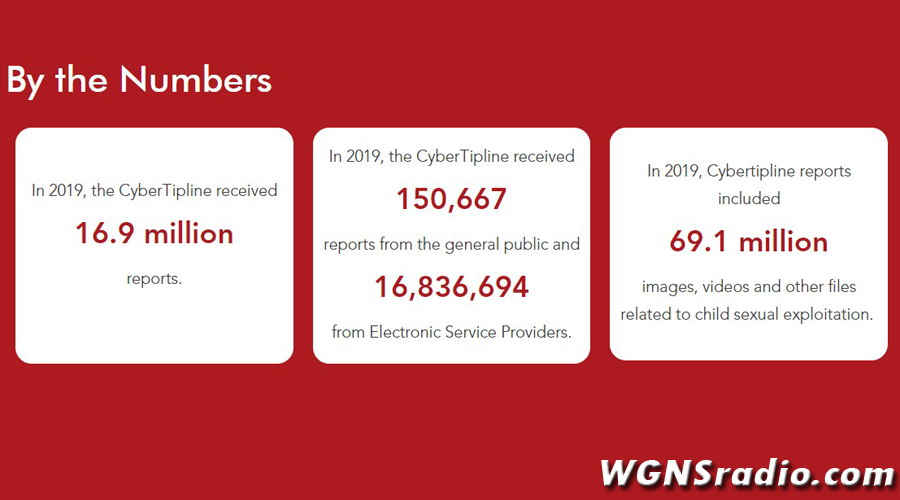Kendall Carter portrayed himself as a girl in a Kik chat room and asked a 12-year-old girl in South Dakota to send nude pictures of herself.
Once obtaining the pictures, Carter used a male’s name and sent the pictures to the girl, said Rutherford County Sheriff’s Detective Patty Oeser. He asked for more nude pictures and videos.
Court documents stated Carter threatened to expose her photos to other people unless she took more graphic images including images of herself engaging in sexual acts. She sent more pictures.
“She disclosed to her school counselor because he wanted her to make pictures with a friend in the bathroom at school,” Oeser said. “She couldn’t take it anymore.”
The FBI describes sextortion as a crime that happens online when an adult convinces a minor child to share sexual pictures or perform acts on a webcam.
Court documents stated Carter befriended several underage girls online and would “exchange nude images with them and then use a different on-line persona to threaten to expose the girls to others unless the girls took increasingly more graphic images including images of themselves engaging in sexual acts.”
Oeser said a predator will threaten to tell the child’s parents if the child doesn’t comply with the demands for more nude photos and video.
The investigation showed Carter prepared different sextortion messages for the girls.
“He even had pre-written scripts in different languages for the girls,” Oeser said.
Besides the 12-year-old girl, Carter victimized a 16 year-old girl living in Germany.
After the team investigation, Carter pleaded guilty to production of child pornography, two counts of extortion and possession of child pornography in U.S. District Court in Nashville. He’s serving a 30-year prison sentence.
The task force receives referrals from the National Center for Missing Children Network. Oeser receives about 25 to 30 referrals per month about cases in Rutherford County.
“We get a lot of sextortion cases,” Oeser said.
Younger children are especially vulnerable because an adult may be portrayed as a child and befriend them to share photos and personal information.
She believes more children are being exploited on the Internet because they are out of school due to COVID and do not have the chance to make disclosures to teachers.
Parents can help protect their children by reviewing the tips accompanying this story.
Oeser is a mother and grandmother, who tries to protect her grandchildren “because every child deserves a safe childhood.”
Parents can help prevent their children being exploited by:
• Educating themselves about online sexual predators. This one-minute YouTube video is a must-watch for parents. https://www.youtube.com/watch?v=KCJ9cKEK_48.
• Teaching their children safety for using social media.
• Explaining to children to never talk to someone they don’t know on social media and the phone.
• Emphasizing they should not send pictures, especially sexual in nature, on their phone or Internet.
• Using parental controls to keep your child safe on the Internet, TV and cell phones. The Internet, TV and cell phone providers can help set up the controls.
Monitoring children’s web sites daily and have access to their cell phones. Know the children’s pass codes, check cell phone accounts, read texts and review deleted pictures. Be aware of what your children are posting.
The Department of Homeland Security recommends parents share these safety tips:
1. Don’t share too much information. Create a list of things your kids should never post or share online – like their birthday and year, full name, address, and phone number – and make sure they understand why it is important to keep this information private.
2. Be careful about what you post. The Internet isn’t private. Once your kids share a post, picture, or video, they can’t control how others will use it, and it can never be permanently deleted. Teach them be thoughtful and cautious in what they post and share online.
3. Only connect with people you know. “Don’t talk to strangers” is a good rule for the real world and the cyber world. Predators and stalkers can easily create fake profiles to hide their identities, so instruct your kids to only connect with friends they actually know in real life. Also check your children’s privacy settings to make sure strangers can’t see their profiles. Sometimes privacy settings get reset to default settings during program updates, so check their profiles regularly.
4. Keep your location private. Many apps, networks, and devices have geo-tagging features which broadcast your location. This information could lead a stalker directly to your kids, so check that these features are completely off.
5. Protect your password. Show your kids how to create strong passwords and make sure they know to never share them with anyone (except their parents or a trusted adult).
Report suspicion of child sexual exploitation to your local police, your ICAC Task Force or the National Center for Missing and Exploited Children’s CyberTipline (www.cybertipline.com or 1-800-843-5678.
Graphic courtesy of the National Center for Missing and Exploited Children’s CyberTipline.





